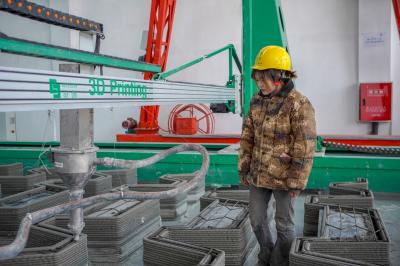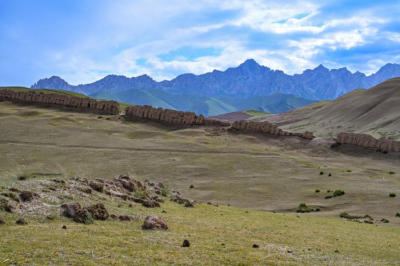Efforts were made to guarantee the legal rights of detainees. In 2013, the Ministry of Public Security organized the amending of Construction Standards for Detention Houses that call for the all-round adoption of the goal of one bed for one inmate in newly built, renovated and expanded detention houses. The Ministry of Public Security worked together with the National Health and Family Planning Commission to specialize and socialize medical care for inmates in venues under public security supervision and establish medical records for detainees, with professional medical institutions in charge of daily medical and health care services. The systems of physical examination for detainees when they are taken into custody, regular body surface examinations for detainees and the notification of the rights and obligations of the detainees and emergency alarming procedures were strictly implemented. The system of interrogation and remand of criminal suspects was also strictly carried out. The systems of assessing detainees' security risk, psychological intervention and investigation, and handling of their complaints were continually improved. The same was so for the system and working mechanism for inviting special supervisors to inspect the detention houses. Various regulations were formulated concerning detainees' rights of the person and belongings, and their litigation rights in detention houses of public security organs. Through the working mechanism and system regarding the establishment of procurator mailboxes, detainees' requests to see resident procurators, meetings between resident procurators and detainees in detention houses and prisons, people's procuratorates were able to find out whether there were violations of the rights of detainees, such as physical punishment, torture, insult and retaliation, and propose remedies and supervise the prisons and detention houses for correction. Between 2012 and 2015, procuratorial organs across China proposed to supervisory organs 7,770 remedies for practices that had been conducted on detainees, including physical punishment, torture, the illegal use of instruments and confinement. All of the practices were corrected. In March 2015, Regulations on the Handling of Cases Involving the Death of Detainees in Prisons were enforced to provide for concrete steps for reporting, investigating and handling, inspecting and establishing accountability.
(3) Right to a fair trial
The system of excluding illegally obtained evidence has been further improved. In 2013, the Supreme People's Procuratorate issued Proposals for Investigation and Supervision Departments to Investigate and Verify Illegal Behaviors during Criminal Investigations (for trial implementation), and further improved the working mechanism for supervising illegal behaviors during criminal investigations. The Supreme People's Court's judicial interpretation on the application of the Criminal Procedure Law also provided for specific rules on the scope of witnesses appearing in court; the scope of appraisers appearing in court; the protection of witnesses, and subsidies for providing testimonies. In a special chapter devoted to eliminating illegal evidence, it clearly stipulated the procedures to apply for excluding illegal evidence and examine and investigate the legitimacy of evidence collection. In 2013, the Supreme People's Court promulgated Regulations on Establishing a Sound Working Mechanism to Guard against Unjust, False or Erroneous Charges in Criminal Cases. For cases having insufficient evidence, defendants should be found not guilty. It provided for eliminating all confessions extorted by torture or other illegal methods, not collected through interrogation in designated venues of case investigation, or confessions collected without audio-visual recordings of the whole interrogation process and those that could not exclude the possibility of being collected through illegal means. Between 2012 and 2015, the people' s courts at various levels found 3,369 suspects not guilty.
The right to defense by suspects and defendants was safeguarded. In 2013, the Supreme People's Court, the Supreme People's Procuratorate, the Ministry of Public Security and the Ministry of Justice jointly issued Regulations on Legal Aid for Criminal Proceedings. Criminal suspects and defendants who could not afford to retain defenders may apply for legal aid. In particular cases, the public security organs, people's procuratorates and people's courts should notify legal aid agencies to designate lawyers for criminal suspects and defendants who do not authorize defenders. |
- Home
- News |Tibet |Exclusive |China |World |Related News |Latest
- Documents |White Papers |Others
- Photo |Politics |Economy & Society |Culture & Religion |Human & Nature |Beautiful Tibet |Other Tibetan-Inhabited Area |Exchanges |Related
- Video |News |Documentary |Micro-Video |Entertainment
- Art
- Tourism
- In Focus
- About Tibet






